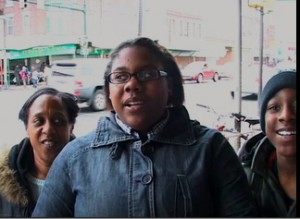
https://vimeo.com/18392305]
Mayor Nutter wants the people of Philadelphia to pay to have their garbage picked up, but that proposal faces some serious trash talking throughout the city.
Two Facebook groups opposed to the proposed fees have already been created. One group, “I’m Against the Philly Trash and Soda Tax,” has over 7,000 members and urges its members to contact their local City Council representative and the mayor himself. Another group, “Protest the Philadelphia Trash Pickup Fee,” shares similar sentiments.
The mayor, whose earlier plan to shut down local libraries to save money created a city-wide furor that prevented the closures, wants to eliminate an estimated $184 million budget gap. The garbage fee would raised an estimated $100 million. “This is not just a trash fee. It’s an annual service charge to each property in the city that will allow us to preserve, restore and expand a variety of services including trash collection, recycling, vacant lot cleaning, graffiti removal and restore services like leaf collection,” he said in his annual budget address on March 4.

Deputy Mayor Rina Cutler said that the proposed fee of $300 would free up funding for other city services. “We do not have to go back and decimate police services and fire services and libraries and rec centers.”
However, lost in the talk of the proposed trash fee is a recycling rewards program launched in February that offers residents the chance to be “paid” to recycle. In the program, residents can earn up to $400 a year in discount shopping coupons. It will be available to residents beginning in July. In a March 16 editorial in the Philadelphia Daily News, Maurice M. Sampson II, president of Niche Recycling and Waste Reduction Systems and chairman of RecycleNOW, believes that incentive-based recycling would benefit the city more than a fee on trash. According to Sampson, “If all 530,000 households in Philadelphia participate in the recycling program, coupons valued at $79 million-$212 million a year will be spent locally.”

Sampson offers several other recommendations for the City Council, including automated trash collection (allowing garbage trucks to lift and empty trash containers), reducing crew sizes, establishing fixed routes for each truck and having curbside collection of food and yard waste.
Members of City Council seem to prefer other means of dealing with the budget shortfall. Councilman Frank DiCicco introduced a bill that would raise property taxes rather than Nutter’s proposed fees. DiCicco said he was concerned about how Nutter’s proposals would impact the city’s poorest residents. He says that his tax increase proposal is “much better than the trash fee.” Councilman W. Wilson Goode concurs, believing that the trash fee is “pretty much dead.”

It is quite difficult to find support for Nutter’s proposed fees, and while it is almost certain that there will be some kind of tax increase, one thing that stands out is the recycling program set to become available to all city residents beginning in July. While there is no guarantee that the program will be a success, it could potentially save residents money in the future by simply recycling. According to Sampson’s Daily News op-ed, when the program was tested for the first time in the city in 2004, there were immediate responses. The pilot programs were introduced in Chestnut Hill and Mount Airy, where recycling rates increased up to 60 percent, and both neighborhoods recorded participation rates of 90 percent. If given the chance, this program could be a big benefit to many residents and could also be a benefit to the city as well.
To see other cities that have considered adopting garbage fees and taxes, hover your cursor over its respective blue symbol.[swfobject]https://smcsites.com/soundslides/uploads/sp1015cityagenciestellthegovernment/sp1015cityagenciestellthegovernment.swf, 550, 600[/swfobject]


2 Trackbacks / Pingbacks